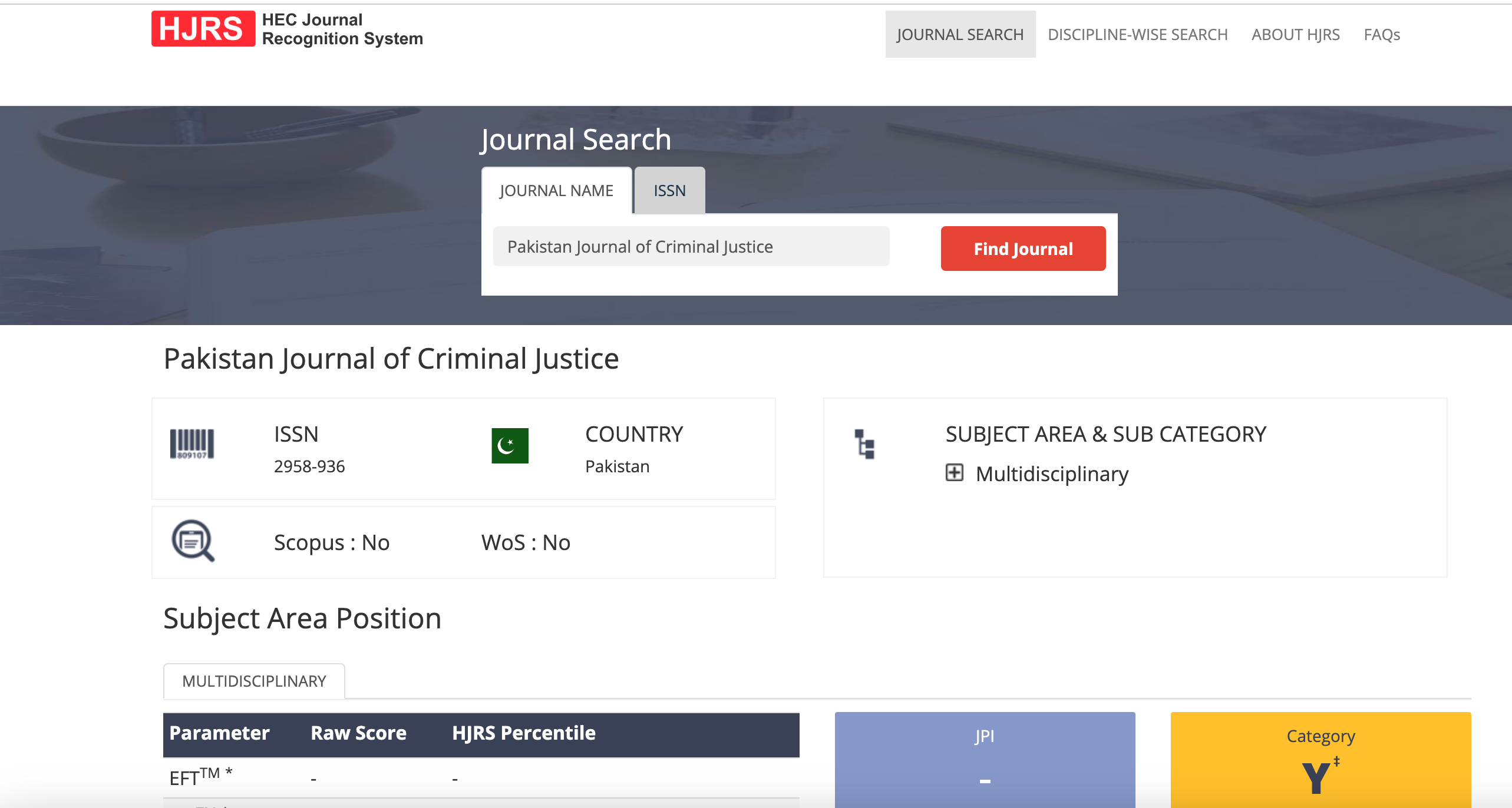Usage of Organs, Illegal Organ Trafficking, and Disposition of Unclaimed Dead Bodies in Pakistan
DOI:
https://doi.org/10.62585/pjcj.v4i1.108Keywords:
organ, trafficking, TAHOTA, drugs, organ theftAbstract
The study "Usage of Organs, Illegal Organ Trafficking, and Disposition of Unclaimed Dead Bodies" examines the intricate relationships that exist between unexplained body disposal, organ trafficking, and the sociolegal environment in Pakistan. It describes a historical context in which the abuse of human bodies has progressed from anatomical research to contemporary organ transplantation procedures, especially in underdeveloped countries beset by poverty and lax regulations. The study emphasizes how stigmas associated with culture and religion impede conversations about organ donation, making it more likely that vulnerable groups will be forced or tricked into selling their organs. According to this study, the illegal organ trade thrives in Pakistan because of the lax enforcement of laws like the Transplantation of Human Organs and Tissues Act (THOTA). The study employs case studies and policy analysis to underscore the dire consequences of unregulated organ trafficking, including health risks and ethical violations. It advocates for comprehensive reforms that encompass legal changes, public education, and international cooperation to combat these issues effectively. The paper also draws comparisons with successful organ donation systems in other countries, suggesting that Pakistan could benefit from adopting similar models to enhance ethical practices in organ donation and improve the management of unclaimed bodies.
Downloads
Published
How to Cite
Issue
Section
License
Copyright (c) 2024 Yasir Aleem Naseem, Rao Imran Habib, Aas Muhammad, Fozia Naseem

This work is licensed under a Creative Commons Attribution-NonCommercial 4.0 International License.





